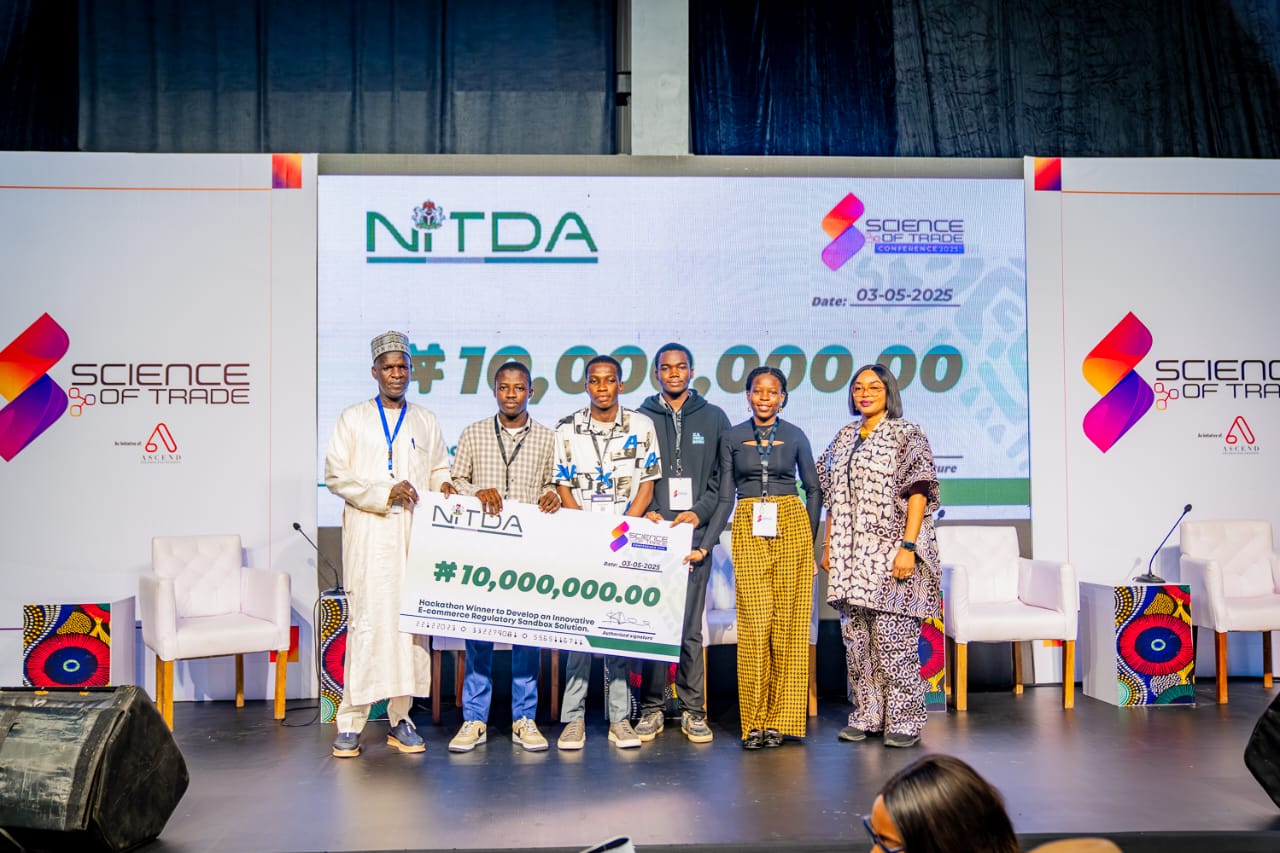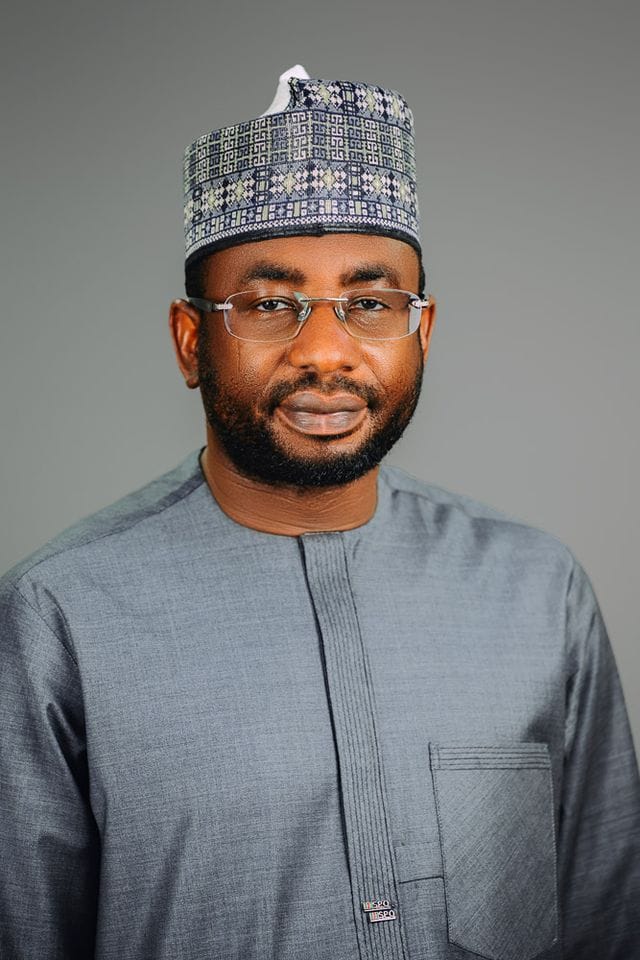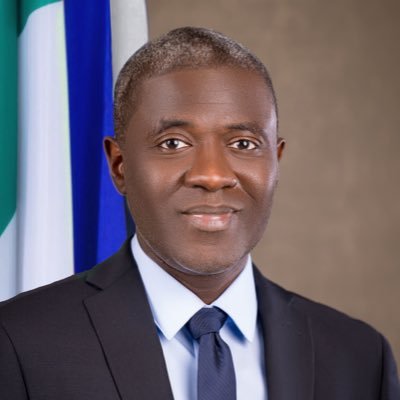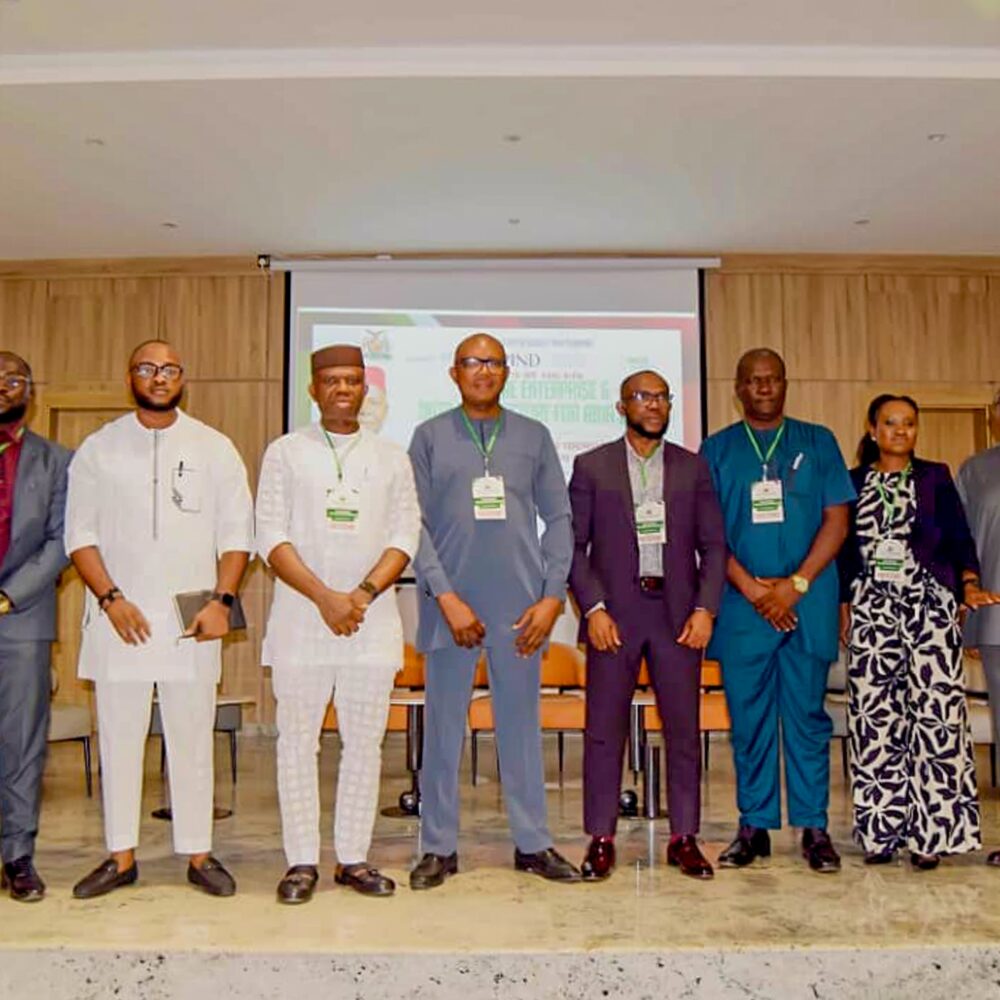The Director General of the National Information Technology Development Agency (NITDA), Kashifu Inuwa, CCIE, has underscored the transformative role of emerging technologies in revolutionising trade and investment across Africa.
Inuwa made this known in a keynote address delivered on his behalf by Engr. Salisu Kaka, Director, Digital Economy Development Department, during the Nigeria AfCFTA Hackathon 2025, held as part of the Science of Trade Conference in Lagos.
He stated that the African Continental Free Trade Area (AfCFTA) stand as one of the world’s largest free trade zones, connecting over 1.4 billion people with a combined GDP exceeding $3 trillion. According to him, the recent adoption of the AfCFTA Digital Trade Protocol marked a major milestone in dismantling trade barriers, harmonising regulations, and expanding market access across the continent.
“Nigeria, with its population of over 200 million and a vibrant entrepreneurial culture, is well-positioned to lead Africa’s digital trade transformation,” he said.
He highlighted the rise of e-commerce and mobile payments as significant game changers, stating: “From Abuja, I can order products online, conduct due diligence, make payments, and receive deliveries technology has made trade seamless.”
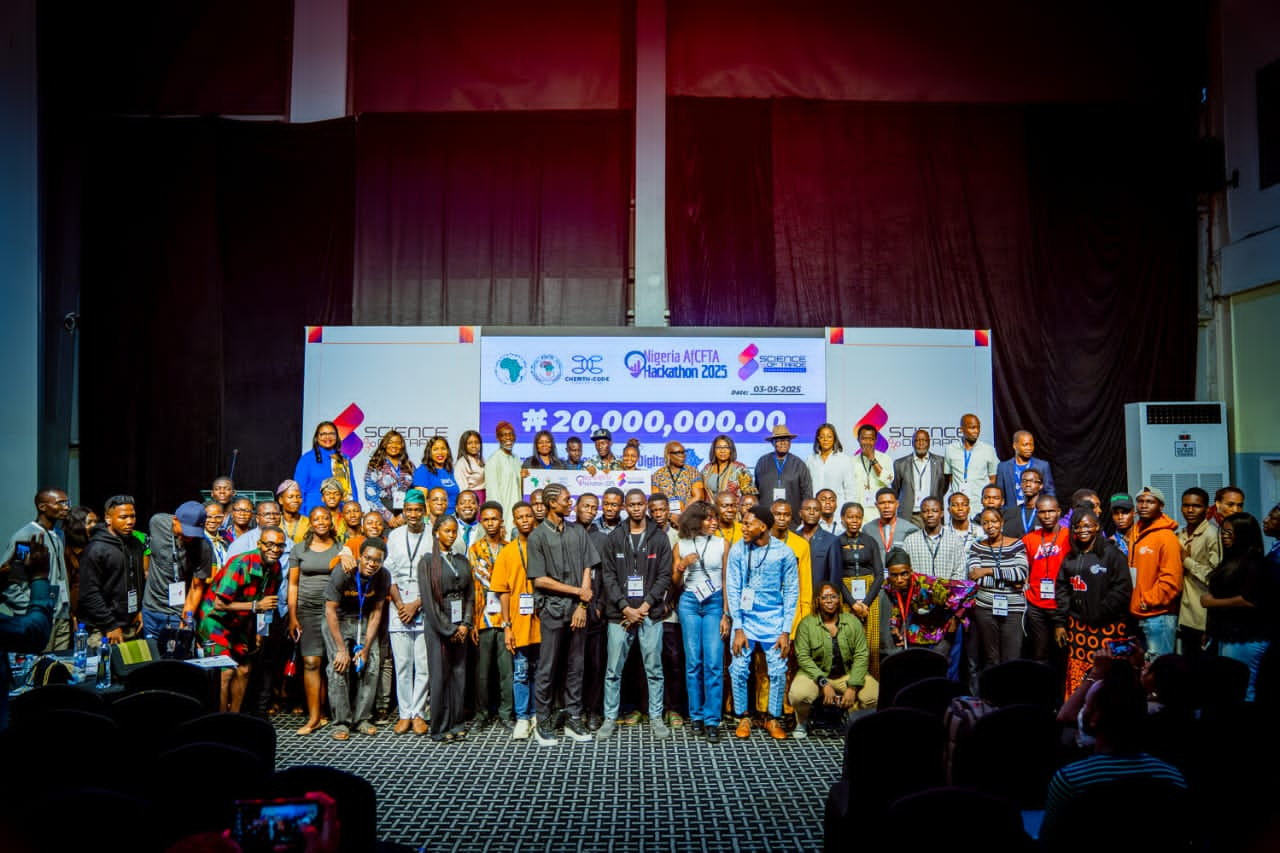
Inuwa noted that the Hackathon comes at a strategic time following the African Union’s 2024 endorsement of the Digital Trade Protocol, which seeks to align digital trade regulations across all 54 African nations.
While acknowledging that technological advances have reshaped global commerce, he lamented that many African trade systems remain constrained by outdated processes, excessive paperwork, and logistical hurdles. However, he expressed optimism, citing the transformative potential of blockchain, artificial intelligence (AI), the Internet of Things (IoT), and digital platforms in overcoming these challenges.
He cited the success of the Nigeria Customs Service (NCS) in leveraging technology through the Nigeria Integrated Customs Information System (NICIS II), which automated core processes like declarations, cargo tracking, and risk assessment resulting in a 238% revenue increase between 2017 and 2023. The newly introduced Unified Customs Management System, which replaced NICIS II in December 2024, has already generated over ₦31 billion.
The Hackathon focused on five key priority areas: Youth and MSME Inclusion, E-Commerce Adoption, E-Commerce Policy and Trust, Digital Payments, and the E-Commerce Regulatory Sandbox sectors where digital innovation can greatly improve trade.
“I’m confident that the Hackathon will generate innovative, scalable solutions to boost intra-African e-commerce, streamline cross-border transactions, and empower MSMEs to compete globally,” Inuwa stated.
He described the event as a launchpad for innovations that simplify payments, promote inclusion, and position Nigeria as a frontrunner in actualising the AfCFTA digital economy framework.
In his welcome address, Dr. Olusegun Awolowo, National Coordinator of the Nigeria AfCFTA Coordination Office represented by Olusegun Olutayo, a Senior International Trade Policy and Law Expert stressed that transformation is a continuous journey.
Awolowo reaffirmed the immense potential of AfCFTA, describing it as a game-changer that presents Africa as a single market of over one billion people. He emphasised that achieving its vision requires collective commitment and inclusive participation.
According to him, the Hackathon represents a practical step toward implementing the AfCFTA Digital Trade Protocol by promoting innovation, inclusion, and equitable access to digital trade opportunities.
He said the event is expected to produce actionable solutions that bridge policy and practice, accelerate Africa’s digital economy, and empower a new generation of African innovators.


